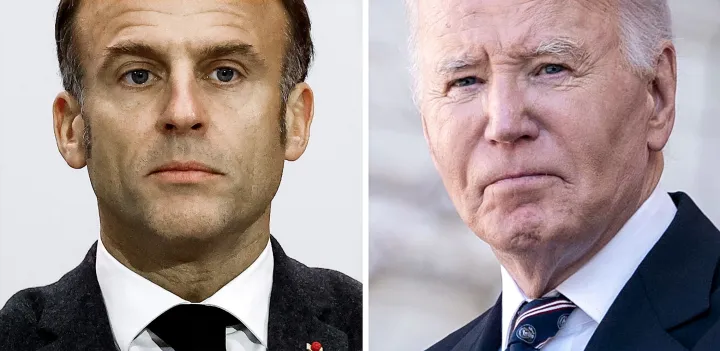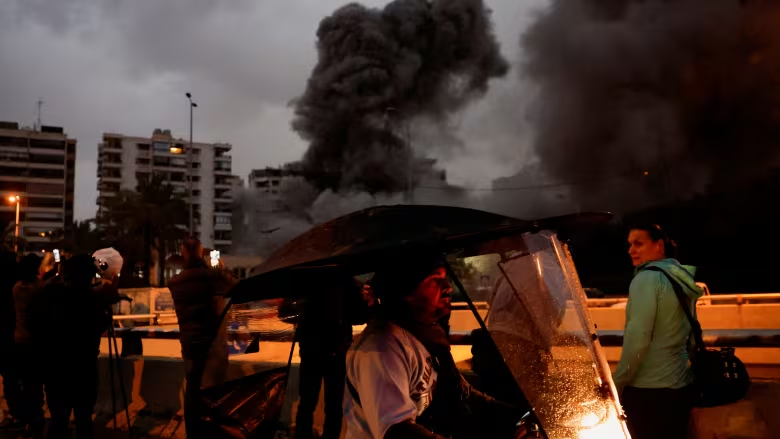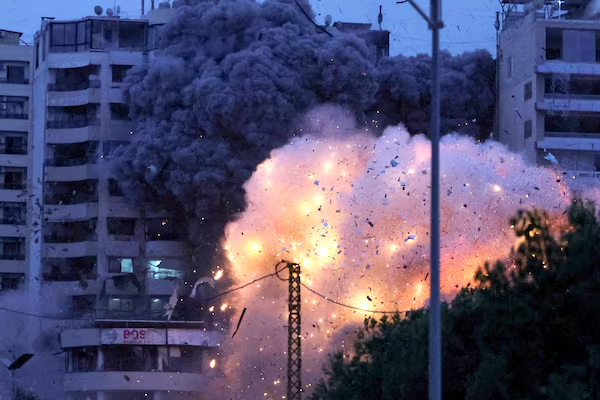U.S. President Joe Biden and French President Emmanuel Macron are on the verge of announcing a ceasefire agreement between Israel and Hezbollah, even as Israeli airstrikes pounded Beirut’s southern suburbs Monday in a stark illustration of the conflict’s ongoing intensity.

The diplomatic breakthrough, confirmed by four senior Lebanese sources, comes amid some of the heaviest fighting since hostilities escalated in October 2023. White House National Security spokesperson John Kirby cautiously noted that while negotiations are “close,” he emphasized that “nothing is done until everything is done.”
The proposed agreement, set for review by Israel’s cabinet on Tuesday, would mark the most significant diplomatic achievement in the region since the outbreak of the Gaza war. The deal would require Israeli military withdrawal from southern Lebanon and deployment of regular Lebanese army troops to the border region within 60 days, according to Lebanon’s Deputy Parliament Speaker Elias Bou Saab.
A key breakthrough came in the past 24 hours with agreement on a five-nation monitoring committee, chaired by the United States and including France, to oversee ceasefire compliance. However, tensions remain over Israel’s insistence on maintaining the right to strike southern Lebanon, a provision Lebanon has historically rejected.

The diplomatic push occurs against a backdrop of escalating violence. Recent Israeli airstrikes killed at least 29 people in central Beirut over the weekend, while Hezbollah responded with one of its largest rocket barrages yet, launching 250 missiles into Israel on Sunday. Lebanon’s health ministry reported 31 additional deaths and 62 wounded from Monday’s Israeli strikes.
The human toll of the year-long conflict has been devastating. Lebanese authorities report over 3,750 deaths and more than one million displaced, though these figures don’t differentiate between civilians and combatants. On the Israeli side, 45 civilians and 73 soldiers have died in northern Israel, the Golan Heights, and southern Lebanon combat zones.
Israel claims significant victories in the conflict, including strikes against Hezbollah’s leadership and infrastructure in areas under the group’s control. The military campaign aims to enable the return of tens of thousands of evacuated Israeli civilians to their homes near the Lebanese border.
U.S. Middle East envoy Brett McGurk heads to Saudi Arabia Tuesday to explore using a potential Lebanon ceasefire as a catalyst for ending hostilities in Gaza, where peace negotiations remain stalled. The Lebanon diplomatic effort focuses on reviving UN Security Council Resolution 1701, which ended the 2006 Israel-Hezbollah war by requiring Hezbollah fighters to withdraw approximately 30 kilometers from the Israeli border.

The pending agreement faces domestic political challenges in Israel, where far-right National Security Minister Itamar Ben-Gvir publicly opposed the deal on social media, urging Prime Minister Benjamin Netanyahu to pursue “absolute victory” instead of a negotiated settlement.
State Department spokesperson Matthew Miller acknowledged that while gaps between parties have “narrowed significantly,” final steps remain. “Oftentimes the very last stages of an agreement are the most difficult because the hardest issues are left to the end,” Miller said.
The French presidency confirmed “significant progress” in ceasefire discussions, while Netanyahu’s office declined to comment on reports that Israel and Lebanon had agreed to the deal’s text. The senior Israeli official who confirmed Tuesday’s cabinet meeting indicated it would focus on approving the agreement’s final version.
The potential breakthrough comes as the Biden administration, entering its final year, emphasizes diplomatic solutions to regional conflicts, even as the parallel war in Gaza continues without clear resolution prospects.



